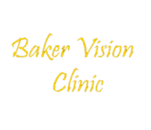
As you’ve probably heard, carrots are good for your eyes. Technically, they can’t give you superhero-quality eyesight like you may have been told when you were young, but they do contain ingredients that are instrumental in protecting your vision and overall health. Carrots are rich in beta-carotene (which the body converts into vitamin A) and antioxidants known to reduce the risk of some cancers, such as leukemia and lung cancer, and cardiovascular disease. The vitamins and nutrients in carrots also help protect the delicate surface of your eyes.
Nonetheless, carrots are not the only foods known to be beneficial for your eyes. In fact, brightly colored fruits and vegetables in general — including pumpkin, red peppers, watermelon and broccoli — have been found to help protect your vision health.
Here are some of our favorites:
- Spinach. A super food, spinach is one of the best leafy green options you can eat to protect your eyesight. Spinach is rich in both lutein and zeaxanthin, antioxidants that filter out light from the eye that can cause damage. Moreover, consuming an adequate amount of lutein has been shown to be an important line of defense against macular degeneration, a disease that leads to vision loss. Given its abilities to help protect eye health, improve blood glucose levels, lower blood pressure and lower the risk of certain cancers, spinach is an excellent ingredient for salads.
- Fish. Omega-3 fatty acids are another incredible nutrient that your eyes need to thrive. Fatty fish like salmon, tuna and herring are some of your best options when it comes to getting omega-3 fatty acids. However, if you aren’t a fan of fish, try eating flaxseeds, walnuts and peanut butter, which are also packed full of omega-3 fatty acids.
- Sweet Potatoes. There’s something about the color orange in natural foods. … Similarly to carrots, sweet potatoes (and yams) contain beta-carotene, which, again, helps protect the surface of the eye as well as mucous membranes and the skin around your eyes. As an added benefit, sweet potatoes also contain high levels of potassium and fiber.
- Eggs. When it comes to your eyesight, the egg yolks are the most beneficial part of the whole egg. Eating eggs is an easy way to ingest lutein, which helps fight macular degeneration. Although it’s best to eat many of the foods listed here in their raw form to help your body get the maximum health benefits, eating slightly cooked egg yolks can still provide eye health benefits.
- Beans. Beans are good for your eyesight in a variety of ways. Specifically, they contain zinc, which helps transport vitamin A through the body to your retinas, which benefit from the vitamin. Moreover, zinc helps convert vitamin A into rhodopsin, which allows you to see at night. Other foods that contain high levels of zinc include oysters, beef, seafood, poultry and pumpkin seeds.
It’s best to eat a balanced diet instead of focusing on one single nutrient, because, as with zinc and vitamin A, many of these nutrients work together for your vision health. Moreover, your overall health will thank you too.
